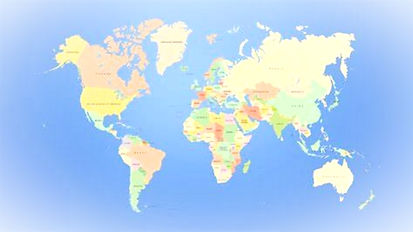Interdisciplinarity as a frame
- Joanna Wexler
- Dec 27, 2023
- 2 min read
I see different aspects of my learning line up with different aspects of an eclectic personal history. With an undergraduate degree in Marine Biology and Ecology, I have a passion for the environment. As an accountant, I am familiar with the need for the practical nature of economics and our financial system as necessary components of how our world operates. I hold a deep commitment to honouring and exploring cultural identity and shared connections. These aspects of learning and self do not always align perfectly. These areas of tension are not a failure of integration, but an understanding of reality as it is. There are centralized connections in a ven diagram, and also pieces that don't quite fit. “If one foregoes the urge to synthesize multiple partial perspectives into an integrated whole, but rather pursues the more modest goal of making space for multiple partial perspectives, and paying attention both to areas of overlap and areas of dissonance, then there can be a path – or, more accurately, paths – through the complexity and towards meaningful and adaptive actions” (Hirsch, P.D., 2012).
One of the benefits of interdisciplinary view is the ability to consider the best solutions that each discipline brings, not only on its own but in combination. On a global scale, each of these topics can be approached by a myriad of disciplines, and their intersections can present points of challenge and opportunity for global interactions, including conflict and environmental destruction. Can we find ways to see more through diverse cultural perspectives? Can we find ways to amplify voices so they can be heard?
The major threads woven through my work are the environment, global context, diversity and relationship. With an interdisciplinary lens, we can examine these topics through the disciplines of ecology, sociology, global studies, religious studies, politics, economics and anthropology. An integrative approach provides insights to the commonalities and intersections.
Our environments are in crisis, from climate change and other global pressures. Shortages of food, fuel and water exacerbates regional conflicts and allows for the insertion of political agendas. The empowerment of civil society, including a range of community leadership is a tool that can be used to make positive change on a global scale. Critical dangers that impact all of us, like climate change, can be a conduit to working towards the a common cause addressing global concerns. These environmental crises will require collaborative approaches that transcend national borders.
Relationship is the key to emotional investment in global issues, where we engage others openly and accept their diversity and difference of perspectives. We can approach relationship in the same way as we approach interdisciplinarity and complex problem solving, "enlisting the knowledge and modes of thinking in several disciplines to examine messy real life problems that require more than one discipline to solve. The goal of such fields is not as much to deepen understanding of the self or the natural world as it is in the humanities and the fundamental sciences, but to apply this understanding to action and social change” (Nikitna, 2006, p. 253). This is the meaningful task ahead in the pursuit of practical applications and solutions for global change.


Comments